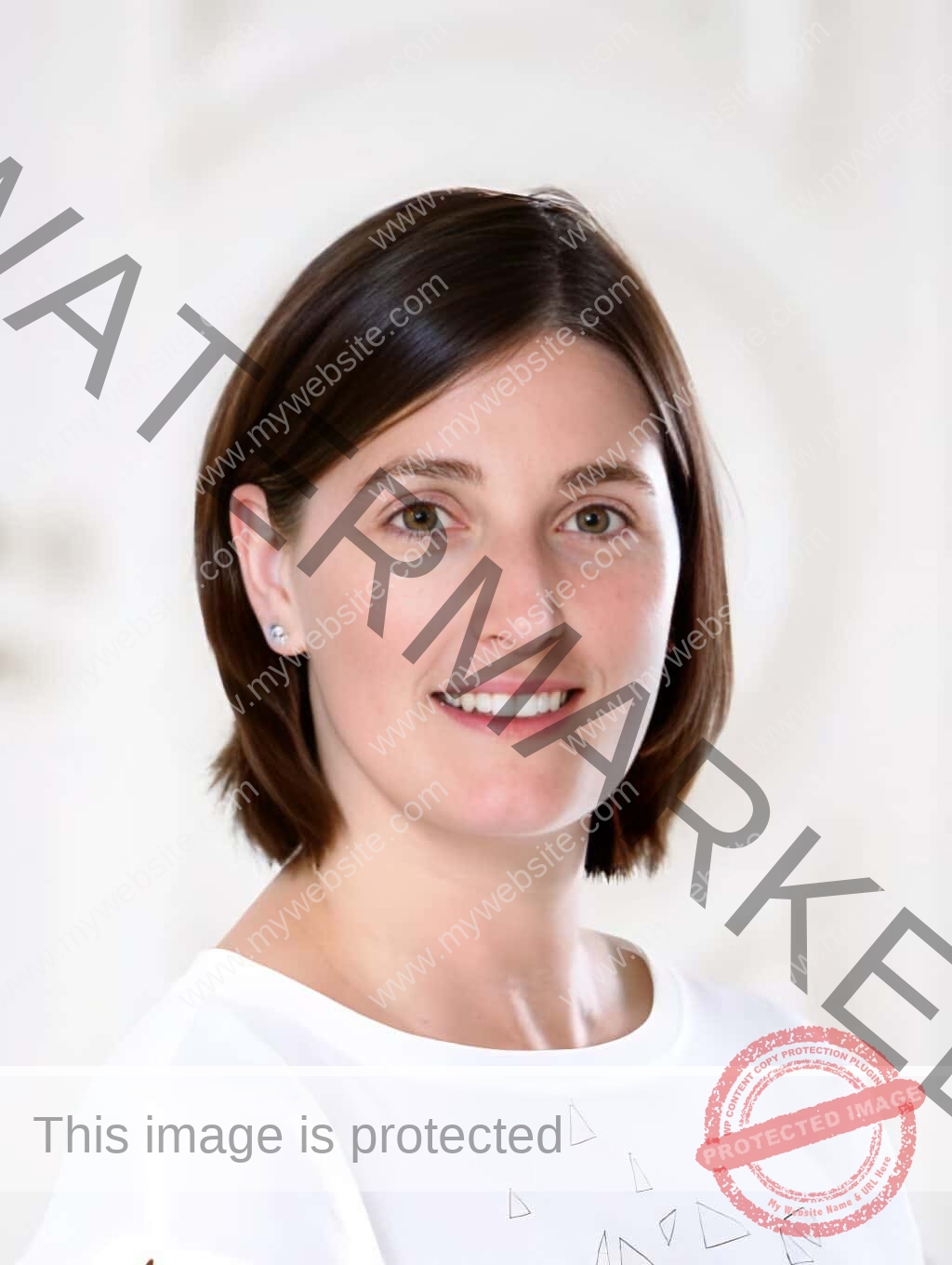Interview with Wrangell fellow professor Amélia Camarinha da Silva
How a semester abroad determined my scientific path into the world of livestock microbes
It all started with an exchange program. When Amélia Camarinha da Silva came to Germany to work at the Helmholtz Center for Infection Research, she finally discovered her passion: microbes. The work in the laboratory led her to consider an academic career path.
When she returned to Germany, she hit the ground running and worked her way from research assistant to one of the youngest junior professors at the university. In this interview, she talks about how she managed to skyrocket her career while balancing the responsibilities of motherhood.
“I never thought that gut bacteria would become my passion.”
Amélia da Silva
When did you discover your passion for science?
I was born and grew up in Portugal. My academic journey wasn’t driven by a lifelong dream but rather practical considerations. I was an average student who liked history, archaeology and science. When I had to choose a path in school, I thought with science, I would have better job opportunities later. So I progressed with it.
My passion for science was a discovery made along my career path in a laboratory. I never thought I would end up in the world of microbiology and the study of livestock microbiomes. It all started in Portugal, where I studied environmental engineering. During my degree, I participated in the Leonardo da Vinci exchange program, which brought me to the Helmholtz Center for Infection Research in Braunschweig, Germany, for a semester.
That was when I learned that I enjoyed science and research and wanted to continue. They offered me the chance to return, so I did just that after completing my degree in Portugal.
Back in Germany, I started as a research assistant and soon embarked on a PhD focusing on the microbiome of the anterior nares—essentially, the microbial communities inside our noses. This was my foray into microbiome studies.
Then my husband had to move to Stuttgart, and I started looking for a job here. My first contract at the University of Hohenheim was as a student assistant, known in German as a “Wissenschaftliche Hilfskraft” (Hiwi), where I did some data analysis.
Then, I applied for a young investigator group leader in livestock microbiome. At the end of the funding period, I applied for the Margarete von Wrangell fellowship. I got the fellowship, but after a year, a tenure track junior professorship in livestock microbiome opened up, and I applied. Now, I’m nearing the end of the tenure track process, with the full professorship on the horizon for 2024.
“As a scientist, we live a life of uncertainty, always preparing the next move. Securing one temporary contract after another is challenging.”
Amélia da Silva
What was the biggest challenge in your career path?
The biggest hurdle in my career has been dealing with the instability of short-term contracts in the scientific world. It’s a life filled with uncertainty, always planning for the next opportunity. But if you’re truly passionate about this path, you must keep pushing forward.
Seizing the role as leader of a young investigator group in livestock microbiome research felt like a once-in-a-lifetime opportunity.
Yet, after a five-year contract, I found myself searching for another role, which is when I applied for the Margarete von Wrangell program.
The first year as a tenure track professor was incredibly challenging. Balancing the responsibilities of a new mother while hiring staff, understanding bureaucratic processes, and establishing a lab isn’t easy, especially with an inadequate childcare system.
Did you have a mentor or a role model?
During my studies in Portugal, I was fortunate to have several female professors who greatly influenced my path. One, in particular, played a pivotal role in my decision to pursue opportunities abroad. Her suggestion led me to Germany and the Helmholtz Centre for Infection Research. This advice marked a turning point in my career.
Until then, I had envisioned a future in environmental management, perhaps working in a city government or waste treatment. The idea of continuing in academia wasn’t the typical route for graduates from my degree.
Over the course of my career, I have been fortunate to have several role models, from my PhD supervisor to project partners and colleagues at Hohenheim. They were very supportive of my Margarete von Wrangell and junior professor applications. Their guidance has a significant impact on my academic journey.
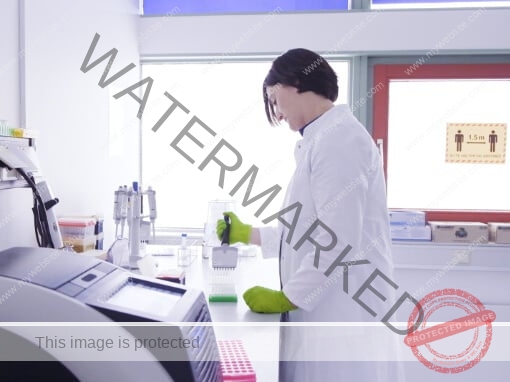
Amélia da Silva in the lab
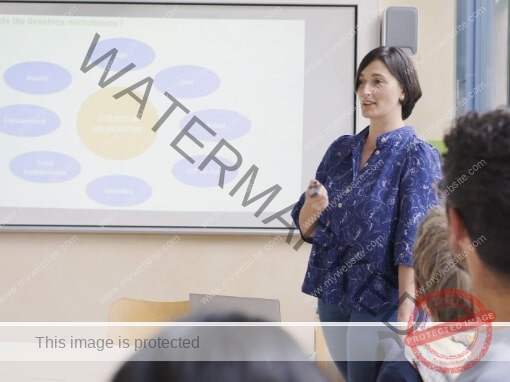
Amélia da Silva in the apprenticeship
“My involvement with microbiology started with my PhD and now I am studying the gut microbiome of livestock.”
Amélia da Silva
When did you realize that you wanted to become a professor?
My path toward becoming a professor wasn’t predestined or clearly defined from the beginning. As a child, I was fascinated by archaeology, drawn by my love for history, which was one of my favorite subjects around seventh or eighth grade.
However, when I reached the 10th grade and had to choose a specialization—science, economics, arts, or languages—I steered away from history, fearing the job perspectives for archaeologists. Science seemed to offer better career opportunities.
The turning point came much later when I decided to apply for the Margarete von Wrangell fellowship and then for the Junior professorship. Until then, my career had been a series of seized opportunities rather than a clearly planned strategy.
In retrospect, it was a combination of opportunity, a touch of naivety, and a willingness to take chances that propelled me forward. It wasn’t until I applied for the Margarete von Wrangell fellowship that I envisioned a future in academia, marking the clear path toward becoming a professor.
How do you evaluate the Wrangell Fellowship in retrospect?
I was only one year under the program, but everything was very well organized. We had seminars, coaching sessions and a mentoring program. The fellowship not only provided financial security but also granted the freedom to explore our chosen subjects.
I found the exchange among women within the Wrangell program was particularly impactful. This dynamic, supportive community proved to be not just beneficial but essential.
“It is not easy to be a mum and a scientist at the same time, mainly because the childcare system is not really supporting.”
Amélia da Silva
Do women still need special support programs or assistance?
Yes, specialized support programs for women are still essential. Despite many women earning PhDs, there’s a noticeable absence in higher academic and leadership positions. My own experience has been positive, with male mentors, particularly my doctoral advisor, providing substantial support and encouragement.
For instance, he assisted me while I was establishing my lab with cost-effective solutions and encouraged me to pursue opportunities like the Margarete von Wrangell fellowship and the junior professorship.
I was fortunate to be fully embraced by my institute at Hohenheim, with men playing a significant role in my advancement. However, I recognize my experience as privileged; not all women receive this level of support. There remains a significant need for initiatives that elevate women in science and academia.
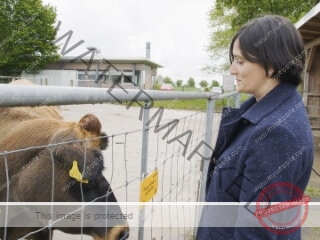
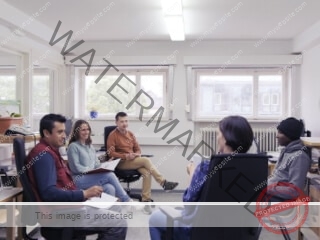
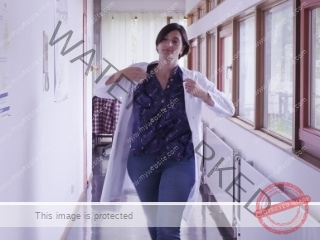
Have you ever heard comments or felt disadvantaged because you are a woman?
I’ve been fortunate not to feel disadvantaged as a woman in my field, but I’m aware that it remains a male-dominated world. Comments like ‘got that because she’s a woman’ underscore the existing biases. For me, the real struggle has been the balance between motherhood and a scientific career.
Childcare facilities, often operating on traditional schedules, didn’t align with our demanding professional lives, especially if both parents work full-time. The expectation to work beyond regular hours, like evenings or weekends, coupled with the demands of parenthood, is particularly challenging.
Mothers frequently use their ‘free’ time for work, impacting career progression compared to counterparts without children.
There’s a misconception that maternity leave is a break during which you can write papers and proposals, but that’s not the reality for everyone. While I’m grateful for my supportive husband and team, broader societal attitudes need a paradigm shift.
In many places, the default expectation is still that women should be the primary caregivers. This is reinforced by inadequate childcare support, especially in southern Germany.
How do you reflect on what you have achieved?
Currently I’m at the end of the tenure track process. While there were inevitable challenges along the way, the minor hurdles have been valuable lessons in resilience and growth. I never regretted becoming a scientist, and I don’t think I will ever regret becoming a professor.
“The microbiome can link diverse research fields and contribute to a holistic understanding for enhance animal health in livestock.”
Amélia da Silva
Current research
Our ongoing research focuses on the microbiome within the animal gut, exploring its responses to factors such as diet, genetics, immunology and environment. Recognizing the significant role of the gut microbiome as a potential source of infection, we are committed to mitigating associated risks and promoting animal health, with potential benefits extending to human well-being.
Together with other colleagues we’re investigating how the microbiome can contribute to breeding advancements, and identifying bacterial signatures that could improve feed conversion rates in animals. There are indications that certain bacterial groups may enhance performance parameters and animal health. By either providing the right diet or modulating the bacterial population to increase beneficial microorganisms, we aim to minimize animal illnesses.
We’re also examining microorganisms that facilitate the assimilation of essential minerals like phosphorus, nitrogen, and calcium. With phosphorus reserves dwindling, understanding bacterial mechanisms that aid in its assimilation is crucial for sustainability.
Profile
Name: Amélia Camarinha Silva
Year of birth: 1981
Field of research: Microbiome of livestock
University and Department: Department of Livestock Microbial Ecology at the institute of animal science (University of Hohenheim)
Family: 1 child (4 years)
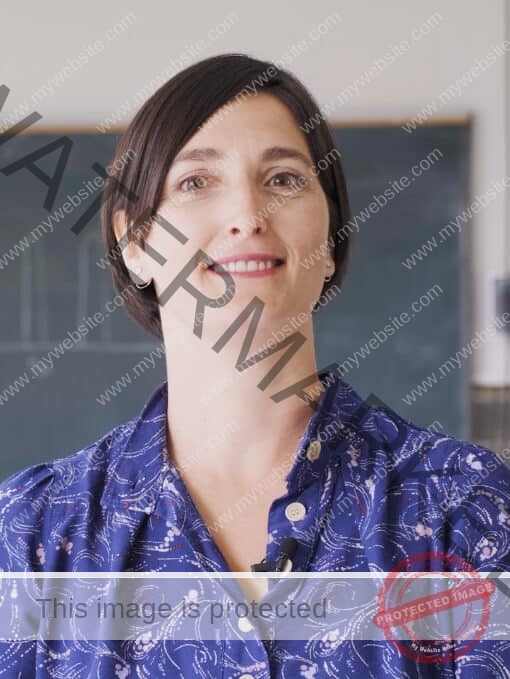
Amélia da Silvas’s career path
Environmental engineer degree at Catholic University of Portugal (Porto, Portugal)
August 2009 – December 2011: Doctoral studies at Helmholtz Centre for Infection research (Braunschweig, Germany)
PhD (Dr. rer. nat) in Natural Sciences, specifically in Molecular Microbiology, University of Braunschweig, Germany
July 2014 – December 2017: Young investigator group leader at the Institute of Animal Science, University of Hohenheim
Since January 2018 Jun.-Prof. and head of the department Microbial Ecology of Livestock at the Institute of Animal Science, University of Hohenheim
Prizes and personal scholarships
2021 – Advancement award of the H. Wilhelm Schaumann Foundation
2016 – Margarete von Wrangell Habilitation program
Source
Interview with Amélia Camarinha da Silva on 03/28/2023

